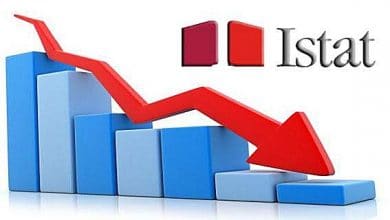
Nursing prescription. Same efficacy as a medical prescription in the management of chronic conditions. Here because
Nursing Mind – August 30, 2019
Prescribing by properly trained pharmacists and nurses offers results similar to prescribing by physicians, at least in the management of chronic conditions.
At a time of high demand for NHS resources, with shortages of doctors in some specialties, prescribing from other professionals can help reduce the workload, but it is necessary  consider safety, time and cost of training.
consider safety, time and cost of training.
Independent and supplemental prescribing is seen as a way to improve access to medicines, free up doctors' time and better leverage the skills of professionals such as nurses and pharmacists.
The Cochrane review pooled clinical outcomes and patient satisfaction in 45 studies of nurse or pharmacist prescribing versus physician prescribing.
The majority of studies involved the management of chronic disease in primary care settings in high-income countries (25 from the US and six from the UK).
Prescribing in the UK
Prescribing by health professionals other than doctors has been in place in the UK since 2006. Nurses, pharmacists, dentists and other healthcare professionals are now able to train as independent prescribers, which means they can prescribe any drug within their purview. There are approximately 19,000 nurse prescribers in the Kingdom.
Prescribing in the UK by professions other than doctors is regulated by law.
The following groups can form as independent prescribers:
dentists; midwifery nurses; pharmacists; optometrists; podiatrists; physiotherapists.
Independent prescribers can prescribe any drug (except opioids for addiction treatment) within their purview.
The National Prescribing Center, now part of NICE, has published guidance on non-medical prescribing.
The guidance states that non-physician prescribers can help NHS organizations meet benchmarks, deliver urgent and out-of-hours care and meet quality care standards for long-term conditions.
I study
This was a Cochrane review of 45 studies comparing doctors' prescribing with  prescription from other healthcare professionals. The focus has been on independent prescribers, able to start, change or stop medications without close supervision from doctors. Most of the studies concerned the management of chronic diseases in primary care settings.
prescription from other healthcare professionals. The focus has been on independent prescribers, able to start, change or stop medications without close supervision from doctors. Most of the studies concerned the management of chronic diseases in primary care settings.
The results
Outcomes for patients after prescribing from nurses or pharmacists were similar to those for prescribing physicians.
The review provides some reassurance that properly trained independent prescribers can prescribe as effectively as doctors for patients with long-term conditions. Nurse prescribers or pharmacists can be helpful in managing chronic diseases such as high blood pressure and diabetes.
Blood pressure: people prescribed drugs by nurses or pharmacists had lower systolic blood pressure than those prescribed by doctors (-5.31 mmHg, 95% confidence interval [CI] -6.46 to -4.16; in 12 studies involving 4,229 participants).
Cholesterol: people who were prescribed medications by nurses or pharmacists had lower low-density lipoprotein cholesterol than those prescribed by doctors (-0.21 mmol/L, 95% CI -0.29 to -0.14; in seven studies, involving 1,469 participants).
Glycemia: People prescribed medications by nurses or pharmacists had lower glycated hemoglobin (HbA1c, a long-term measure of blood sugar control) than those prescribed by doctors (-0.62%, 95% CI -0.85% to - 0.38%; in six trials, with 775 participants).
Patient adherence to medications, patient satisfaction, and health-related quality of life were also comparable between nurse and pharmacist prescribers and physician prescribers.
However, we do not know from the review whether prescribing by these professions saves overall costs when time and training are taken into account. While the number of adverse events between the physician and independent prescribing groups were similar, information on adverse events was limited.
from:
Nurses and pharmacists can prescribe as effectively as doctors
Related news: Nurses and pharmacists can prescribe as effectively as doctors
Cochrane. Prescribing roles for health professionals other than doctors





